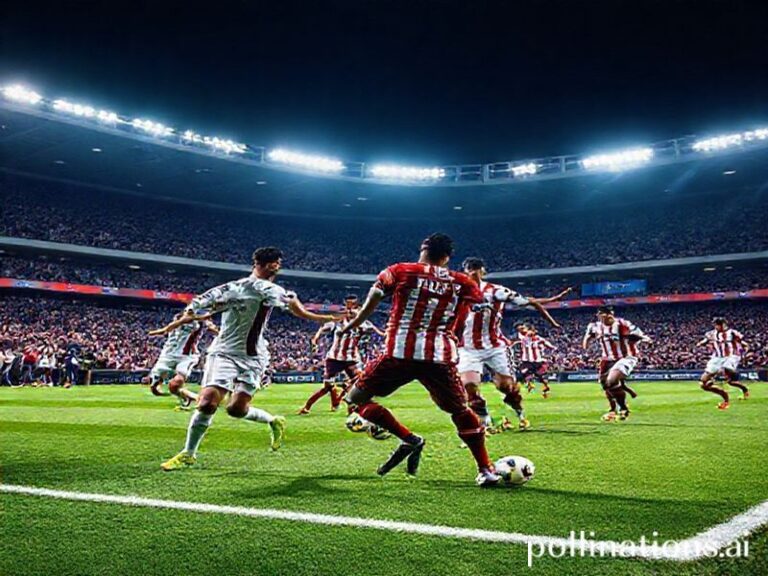Jorge Polanco: The Dominican Switch-Hitter Quietly Explaining Global Capitalism One Double Play at a Time
Jorge Polanco and the Geopolitics of a Utility Infielder
by “Buzzard” Beaumont, Senior Correspondent, Dave’s Locker
The first time most Europeans heard the name Jorge Polanco, they assumed he was either a Colombian striker or the latest cryptocurrency rug-pull. Instead, the 30-year-old switch-hitting infielder from San Pedro de Macorís—population 290,000, GDP roughly equal to a midsize hedge-fund Christmas party—has become a walking Rorschach test for how the rest of the planet misunderstands American baseball and, by extension, America itself.
Consider the transaction that sent Polanco from the Minnesota Twins to the Seattle Mariners this past January. Inside the continental bubble, it was reported as a “salary dump” and “roster rebalancing.” In the international press, it registered as a minor tremor on the Richter scale of American excess: a man traded like a sack of fair-trade coffee in exchange for prospects whose names sound like failed boy bands (Blas Castillo, Yohander Martinez, et al.). The BBC buried the story beneath a headline about otters reclaiming Venice; El País ran it next to a piece on Spain’s latest labor strike. Both placements were correct.
Polanco’s journey is a master class in globalization’s double standards. He grew up in the Dominican Republic, a country whose biggest export after sugar is shortstops. MLB clubs operate 30-odd academies there, essentially talent refineries where 14-year-olds learn the English phrase “I’m just trying to stay within myself” long before they grasp the subjunctive. The academies are praised in the U.S. as philanthropic springboards; in Europe, they’d be labeled neo-colonial talent pipelines and investigated by an indignant EU subcommittee. Meanwhile, Japan’s NPB teams sniff around the Caribbean like salary-men shopping duty-free, proving that imperial appetites merely change uniforms.
On the field, Polanco’s value is quantified in WAR, OPS+, and other acronyms designed to make the sport resemble a hedge-fund prospectus. Off the field, he’s a case study in the gig economy applied to sinew. His $10.5 million club option for 2025 is, in global terms, either obscene or laughably small. For context: it’s the annual security budget of Tuvalu, minus the snorkeling gear, or one-third of what Paris Saint-Germain pays Kylian Mbappé’s entourage to open Instagram. The Mariners, owned by a Nintendo scion and a smattering of American billionaires, will write off Polanco’s salary as briskly as a Tokyo salaryman expenses yakitori. Somewhere, an Amazon warehouse worker pulls a hamstring and pays his own hospital bill.
The broader significance? Polanco’s footsteps trace the fault lines of twenty-first-century labor. He is simultaneously a migrant worker, a brand asset, and a depreciating capital good. His Achilles tendon is a balance-sheet liability; his smile is intellectual property. If he tears something vital sliding into second, the Mariners’ insurance policy—underwritten in London, re-insured in the Caymans—will pay out quicker than the Dominican public hospital system can find a working X-ray machine. Capital moves faster than blood.
Yet fans persist in calling this “a game,” the same way we call Twitter “a conversation.” Watch Polanco turn a 4-6-3 double play and you’ll witness a perfectly choreographed ballet sponsored by a Japanese tire company, broadcast on a streaming platform whose servers are cooled by Scandinavian fjords. The ball itself is stitched in Costa Rica, where workers earn roughly one Polanco autograph per hour. None of this is mentioned in the broadcast, because existential vertigo is bad for concession sales.
So what does it mean that a utility infielder from San Pedro now plies his trade in the Pacific Northwest, a region currently debating whether to house the homeless or the orcas first? It means the world has shrunk to the size of a diamond, and every base is a border. It means that when Polanco flips a relay throw to first, he’s also flipping a tiny cog in the global machinery that keeps sneakers cheap, streaming subscriptions humming, and geopolitical anxieties comfortably abstract.
In short, Jorge Polanco is not merely a baseball player. He’s the latest diplomatic courier in an empire that outsources everything except nostalgia. And should he hit a walk-off homer in October, half the planet will cheer while the other half wonders why grown men are paid handsomely to play rounders in pajamas. Both responses are 100 percent accurate. Welcome to the show.







